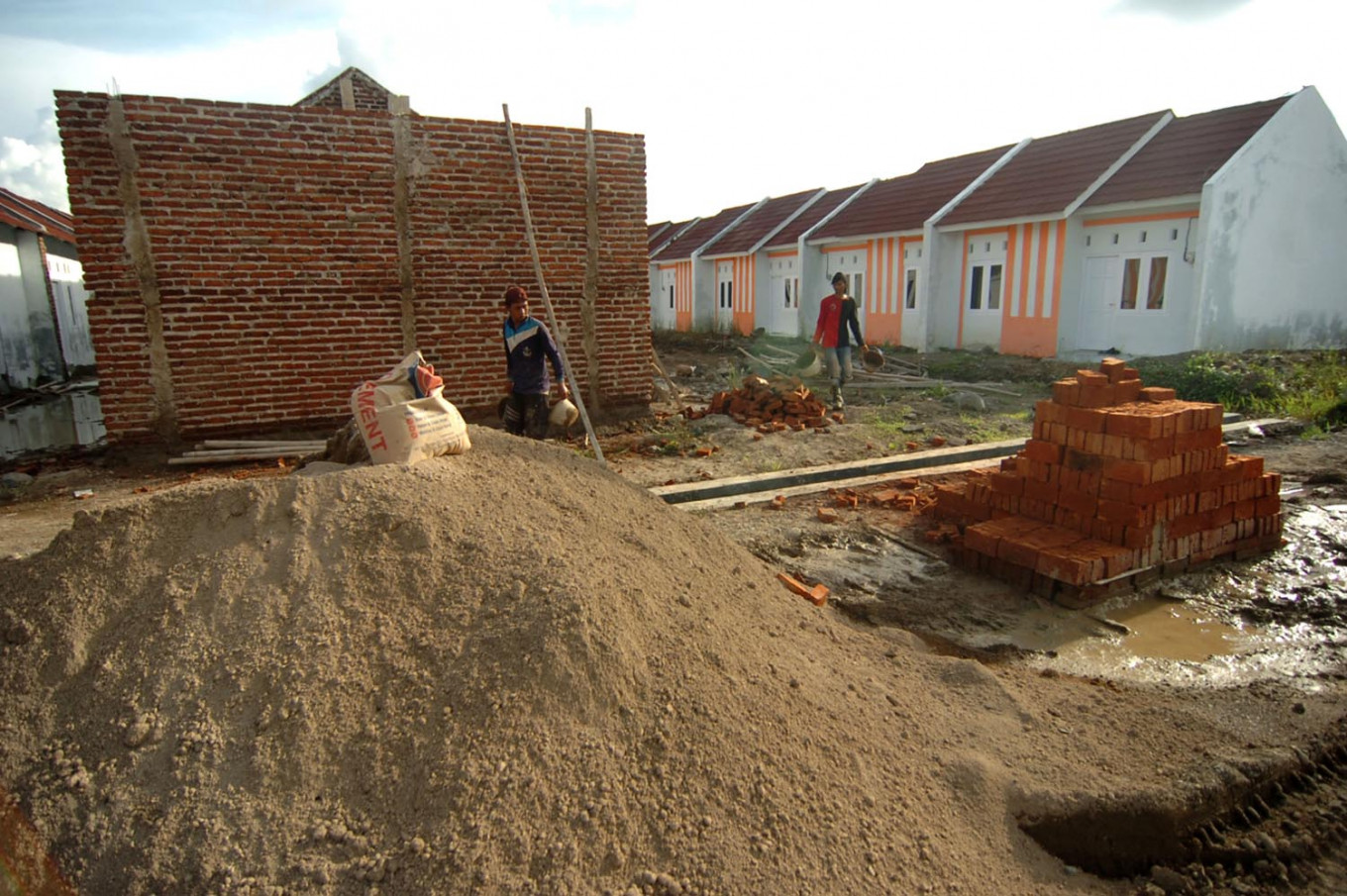Popular Reads
Top Results
Can't find what you're looking for?
View all search resultsPopular Reads
Top Results
Can't find what you're looking for?
View all search resultsHousing-related complaints dominate reports to consumer protection agency
Seventy-four percent of reports that have been filed with the National Consumer Protection Agency since 2017 are related to housing, with consumers mostly complaining about legal uncertainties of housing projects, delays in the completion of housing or apartment development and sudden increases in water bills.
Change text size
Gift Premium Articles
to Anyone
C
omplaints from consumers in the housing sector make up the majority of the 3,269 reports that have been filed with the National Consumer Protection Agency (BPKN) since 2017.
Seventy-four percent of the reports are related to housing, with consumers mostly complaining about legal uncertainties of housing projects, delays in the completion of housing or apartment development, late handovers and sudden increases in water bills.
Reports related to financial services made up the next biggest percentage of complaints at 11 percent of the total reports filed, followed by complaints within the e-commerce industry at 5.6 percent.
Since 2017, the BPKN has solved slightly more than half of the complaints in the housing and financial services sectors and nearly a quarter of the complaints in e-commerce.
Read also: Low-cost property dominates market demand in year’s first half
“Complaints usually take a long time to solve because they are hampered by systemic and structural issues like regulations,” Rizal Halim, the coordinator of the advocacy commission at the BPKN, said in a virtual press briefing on Monday. “Aside from that, there are difficulties in finding the addresses of the [reported] companies.”
As regulations have failed to catch up with the rapid pace of economic development, especially in industries like e-commerce, the BPKN has seen in the past three years an increase in the number of complaints from consumers who feel their rights have been violated.
In financial services, the complaints often relate to vehicle leasing, mortgage loans for houses or apartments, breaches of credit card and savings accounts and online lending.
E-commerce consumers mostly filed complaints on account hackings, goods and services that were different from their orders, products that failed to reach them and refunds.
“With the digital development, many consumers are harmed because of the [practices of] financial technology and online lending, which can cause massive losses, including privacy [issues] over personal data that is not protected due to absence of regulation,” said BPKN research and development commission coordinator Anna Maria Tri Anggraini.
Read also: Govt housing subsidy program hampers market growth, World Bank says
Indonesia has no specific law that comprehensively stipulates personal data protection. Regulation on data protection is scattered across 33 different laws, according to the Institute for Policy Research and Advocacy (ELSAM).
There are an estimated 175 million internet users in the country, but digital literacy, including awareness of online safety, is relatively low. The Global World Digital Competitiveness Index, which includes digital literacy among other indicators, ranked Indonesia 56th out of 63 countries in 2019, far below Singapore and Malaysia, which were ranked 2nd and 26th respectively.
Rizal said the agency had seen a spike in complaints since it expanded channels for consumers to submit their reports, enabling the BPKN to directly interact with the public.
“Between September and December 2017, we received 281 complaints. [After the expansion], there was a significant increase in 2018,” Rizal said.
The agency received 281 reports in 2017, 580 in 2018 and 1,518 complaints last year. This year, it has received 890 reports.
Read also: Lawmakers grill religious affairs minister for 'sudden' haj cancellation
To solve issues confronting consumers, the BPKN sent 190 recommendations to government ministries and agencies. However, only 39 recommendations were followed up with changes in policy.
Thirty-one to 33 percent of recommendations were followed by concrete action from the government from 2018 to 2019.
Of the nine recommendations issued by the BPKN this year, only two of them have been processed by the government.
“The nature of these recommendations are not binding,” Anna said.
The agency’s recommendations in the past three years address the government’s health insurance program, umrah (minor haj) business, housing, the digital economy and data on regional food availability, among other issues.










